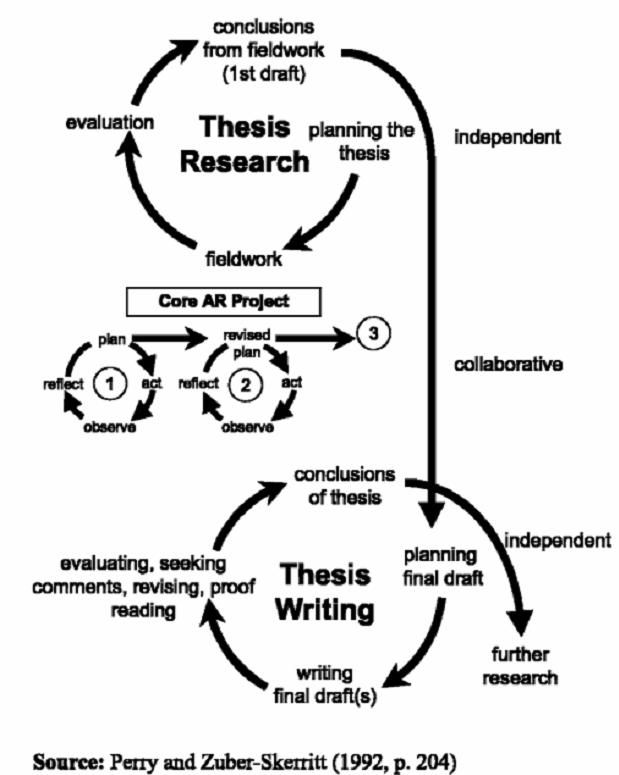Our planned methods for achieving our academic, personal and practical goals have been influenced by: 'action research'; approaches to strategic planning, inquiry and dialogue practised over previous months; and Maxwell's (2005) publication "Qualitative Research Design - an interactive approach". We have developed a timeline and some visual representations of the anticipated learning cycles, and also recognise that emergent ideas and findings should influence the design of our research.
The following activities are planned:
1. Development of conceptual framework and defining key thesis terms through:
- Our own experiential knowledge
- Existing theory and research: Six prioritised areas of research and theory were built by visually clustering our individual ideas , then grouping them under the following headings. These topics, and our knowledge of SSD, comprise our ‘weltenschauung’ i.e. the worldview and paradigms that are the lens through which we look at the research questions.
- Our pilot and exploratory research will further inform our conceptual framework.
- Thought experiments, use of causal loop diagrams and other methods will be used to ‘test’ some of our theories during the course of the thesis research.
2. Communication with personal contacts and those identified as being knowledgeable in some aspect of our thesis work.
3. Piloting and revision of semi-structured interview methods.
4. Semi-structured interviews with people who have experience relevant to the answering of our thesis questions: e.g. have created business-civil society partnerships; have explicitly used network ideas to spread sustainability concepts etc.
5. Case studies of examples relevant to our thesis questions e.g. cases that demonstrate desirable characteristics of organisations, or that showed how to overcome practical challenges. 
6. An action-research approach to one major case study: identifying and connecting civil-society organisations with Interface to create a ReEntry network in
7. Analysis and discussion of results.
8. Ongoing dialogue with other thesis groups and our supervisors.
9. Forming general academic conclusions and specific practical recommendations that emerge from the process of answering our thesis questions.
Click here to return to the main page.
1 comment:
very interesting. sounds like you are all working hard.What should I do with my old carpet? good luck with it all
Post a Comment